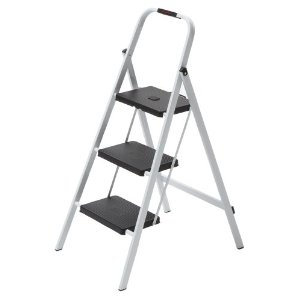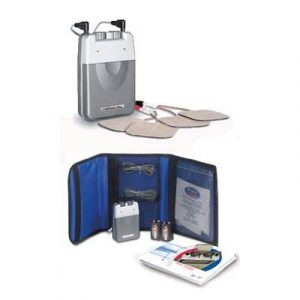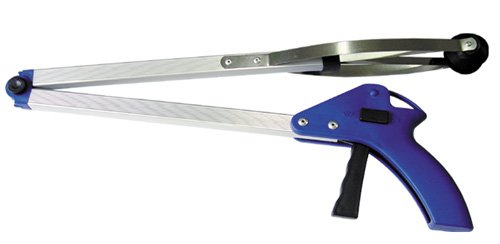This is an extremely generic headline and the following post will of course not be relevant to all disabilities or illnesses. I started making a list of practical items that would be useful for me to get for myself, and I thought it might be of benefit to others.
As many of you know, I have Ankylosing Spondylitis (autoimmune arthritis in my spine), fibromyalgia, IBS, and depression.
My main symptoms are pain in my neck, spine, and pelvis, stiffness and weakness in most of my joints especially fingers and ankles, intolerance to a bunch of foods, and extreme fatigue.
This post may be useful to others with similar symptoms, and the people who support them.
There’s a lot of things that I didn’t consider before I got ill – how difficult it is to bend, for example, or reach. To stand and cook, to make meals that are nutritious, easy, and affordable. To keep myself safe when I have a compromised immune system. There’s practical items that can make these things easier.
I’ve written about gifts before – how much they mean, how I had to learn to accept them. When I first got sick, this was how a lot of people expressed their caring, and that was really important. When you can’t eat because you can’t afford to and you’re allergic to everything and you feel so tired you feel like you might stop breathing (this sounds like hyperbole, I assure you it is not) – when you’re at this stage and someone brings you a meal won’t kill you and puts it in front of you… “thank you” is not enough. Gifts kept me alive.
They also kept me alive because I knew that I was loved. I knew that what I was doing here – writing about my illness and WINZ – meant something to people. I was appreciated. I was listened to. I was supported.
That’s a huge thing you can do for a sick person. It doesn’t have to cost a lot, or anything at all – though it is often a reality that a person with a disability might not have a lot to support themselves. So this is a list of things that are practical and sometimes difficult for the person to obtain, for any number of reasons.
This a list I put together of things that might make good gifts for people with disabilities or illness.
Notes:
1. I’m not an expert in any way! This is all my own experience.
2. Many of the links are New Zealand-specific, but the concepts apply elsewhere.
3. I know that it can take the fun out of giving someone a gift if it is not a surprise, but with some (most) of these things, it would be a really good idea to ask the person first if they want or need it, because they will be the best guide.
Transport/mobility
- Taxi passes – You can buy pre-charged taxi cards that are usable with most taxi companies in New Zealand.
- Bus passes/cards – These are unique to cities but most bus companies either have things like ten-trip passes or e-cards that you can prepay.
- Mobility Parking Permit – Parking permits allow the user to park in disability spaces. I’m in the process of applying for one, but you have to get doctor signoff (which is a good thing), so I have to pay for an appointment, and then it’s $50 for a five-year permit. A really good gift could be helping someone to get one of these, if they want one.
- Red Cross Van donation – I use the Red Cross van here in Nelson to get to and from medical appointments. They run on donations, so I pay whatever I have every time I use it, even if it’s a few cents. You could do this on behalf.
- Walking stick – These are very personal so I would suggest you’d purchase something like this with the user. But they can be so extremely useful and also inexpensive (I’m still using a $4 one!)
Kitchen and food
- Recipe websites or books – I got a few of these and they’re really useful. Make sure you know the person’s dietary requirements, and that the recipes are simple and inexpensive.
- Step stool – These are great for getting things of high shelves (I was short to begin with, and now reaching up is painful and exhausting,) plus you can sit on them when preparing food.
- Grocery vouchers – Make sure it’s for the store they usually go to, and that they can be used online.
- Bottle and jar openers – Really good for when hands and fingers are weak and sore.
- Freezable meals – Make a couple meals you know they like and can eat, and drop them round. It’s so invaluable to have food available when you’re too exhausted to cook.
Cleaning
House cleaning is often one of the hardest things for me. Bending, stretching, lifting – all difficult. I have to pace myself. There’s a few things that can help.
- Vouchers for things like window cleaning etc – Definitely check with the recipient on this one, I personally couldn’t handle having someone I didn’t know do this stuff for me. Just my personality. Many people I am sure would find it extremely helpful.
- Eco friendly/ allergy sensitive products – lots of us with these sorts of illnesses also have allergies. I use eco products everywhere – odourless laundry powder, surface spray, dish liquid. Eco options are usually more expensive so make a good practical gift.
- Extendable dusters, latex-free gloves, and lightweight laundry material hampers (like canvas and bamboo)
- A significant investment is a good, lightweight vacuum cleaner. Vacuuming is one of the hardest jobs for me. I definitely do not expect someone to buy me a vacuum cleaner as a gift!! (I’d be mortified), but I thought I’d point out that offering to do the vacuuming could be useful.
For helping with pain
- Massage vouchers
- Swim passes – This definitely won’t be the same for everyone, but swimming helps my pain a lot, and going to the pool all the time can get expensive.
- Memory foam cushions – I got some from K-Mart and they are fantastic. I use them on my computer chair, in the car, carry them into work.
- TENS machine – Transcutaneous Electrical Nerve Stimulation machine. I bought mine from Patterson Medical and it was such a good investment. It’s hard to describe how they work but they gently interrupt the pain signal in your nervous system and can help provide relief. They’re small and transportable so you can wear them anywhere.
- Antiflamme/Rheumon gel – These are topical pain gels that I use every single day. They’re very effective but quite expensive and you can’t get them on prescription.
- Hot water bottles and covers – I use hot water bottles constantly, and they need to be replaced often. They’re not expensive and the gift can be personalised with a cover. (My friend knitted me one and I love it).
- Heated or weighted blankets – I don’t have either of these so I can’t testify to how much they help, but heat is usually very useful. At the moment I use an electric blanket.
- Slippers – Don’t underestimate the power of comfortable slippers! I’m at home a lot, my ankle joints are weak, and my circulation is poor. Slippers are greeeat. Again, something you would probably purchase with the user along.
What else?
- Sensitive skin products – As I mentioned, many of us with my sort of conditions have allergies and sensitivities. As with eco cleaning products, sensitive skin and hair products can be expensive. These make a really nice gift.
- Helping hand/grabber stick thing – I couldn’t actually figure out what these are called, but they help you pick up things when you can’t bend, and are very useful!
- E-book vouchers – I’m often too sore and tired to hold a book, and my e-reader has been invaluable. You can gift credit for Kobo and Kindle.
- The gift of TIME – this is huge. Rides to appointments, helping with chores, just sitting and talking – even just sitting doing nothing – this is one of the best gifts I ever get given. Don’t underestimate what it means.
Hopefully this gives you some ideas. I am very happy to add to it, so if you know of other things that are useful, please let me know in the comments!
– WH




I’ve just had my cast off from a broken toe. During my time of crutches, some of the things I thought would be useful if it had been going to be a longer-than-temporary disability include:
* a wheely trolley to carry things around the house, like laundry hampers or dinner or a book to read
* a waterproof stool to sit on in the shower
Walking-stick-related: ferrules wear out and need replacing for optimum grip; various sizes are available from pharmacies.
I think someone on the twitters mentioned wheatpacks; I have a lavender pack which is wonderful (and has only once been used by a mouse to sleep on). Crafty folk can make their own with rice, there are instructions all over the internet.
That’s the way. It has been simply incredibly generous with you to provide openly what exactly many individuals would’ve marketed for an ebook to end up making some cash for their end, primarily given that you could have tried it in the event you wanted.